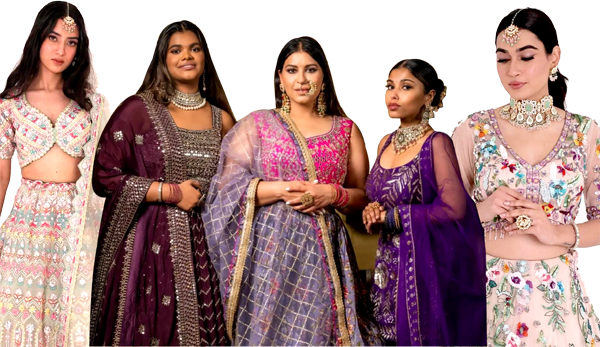What is the Gift Etiquette for Indian Weddings?
Indian weddings are known for their grandeur, cultural significance, and beautiful rituals that span several days. Whether you’re attending as a close family member or a distant friend, knowing the proper gift etiquette can help you navigate the celebration with confidence and respect. Here’s a guide to understanding the traditions and modern practices surrounding gift-giving at Indian weddings.
1. Traditional Gifts
Indian culture places a high value on tradition, and many guests still opt for customary gifts. Some of the most common traditional gifts include:
-
Gold or Silver Jewelry: Jewelry, especially gold, is considered auspicious and is a common gift for weddings. Even small pieces like earrings, bracelets, or silver coins are appreciated.
-
Saris and Clothing: Gifting high-quality silk saris, or even sherwanis (traditional men’s clothing), is a customary way to honor the couple. If you’re unsure about their preferences, you can always ask close family members for guidance.
-
Home Décor Items: Items like silverware, brass statues, or ornate lamps are traditional gifts that symbolize prosperity and well-being for the couple’s new life together.
2. Cash as a Wedding Gift
One of the most common and practical gifts for Indian weddings is cash. It’s considered highly auspicious to gift money in amounts ending in the number “1,” such as ₹501 or ₹1,001, as this symbolizes growth and prosperity.
If you’re unsure of what to buy, cash in an envelope is always a safe bet and will be deeply appreciated by the couple, especially since Indian weddings are large and can be costly.
3. Personalized and Practical Gifts
As traditions have evolved, many guests are moving toward more practical or personalized gifts, such as:
-
Household Appliances: Items like kitchen gadgets, home furnishings, or electronics can be thoughtful gifts as they help the couple set up their home.
-
Personalized Gifts: Custom-made gifts like engraved jewelry boxes, monogrammed linens, or custom photo frames with the couple’s names are meaningful and unique ways to show your appreciation.
4. Gift Wrapping and Presentation
The presentation of your gift is as important as the gift itself. In Indian culture, bright, festive colors like red, yellow, or gold are seen as auspicious. Avoid wrapping gifts in white or black, as these colors are considered unlucky at weddings.
For cash gifts, it’s customary to present them in a decorative envelope called a “shagun” envelope, which can be found in most Indian markets. These envelopes often feature traditional designs and are used to signify blessings.
5. When to Give the Gift
Gifts are usually presented during the wedding reception, but there’s no strict rule about when you must give the gift. Some guests give their gifts during the pre-wedding functions, such as the Sangeet or Mehendi ceremonies, while others wait until the main wedding day.
You can also send a gift to the couple’s home before or after the wedding if you feel it’s more convenient.
6. Consider the Cultural Background
Indian weddings can vary based on the region, religion, and family traditions, so it’s important to be aware of specific cultural practices. For example, in North Indian weddings, cash and jewelry are common gifts, while in South Indian weddings, gifts of clothing or religious items are more prevalent. Always consider the couple’s background when selecting a gift.
7. Group Gifting
If the couple is close-knit with a group of friends or family members, pooling together to buy a larger, more significant gift is a thoughtful option. It could be a luxury item like a piece of furniture, an exotic vacation, or even contributing to their honeymoon fund.
8. Donations in Lieu of Gifts
In some modern Indian weddings, couples might prefer donations to their favorite charities in place of traditional gifts. If this is the case, be sure to respect their wishes and contribute to the charity they have chosen, as it reflects the couple’s values.
Final Thoughts
Gift-giving at Indian weddings is about more than material items; it is a way to bless the couple and share in their joy as they start their new life together. Whether you choose a traditional or modern gift, the most important thing is that your gift reflects thoughtfulness and respect for the couple’s cultural values.
When in doubt, a well-wrapped cash gift is always a safe and appreciated option. Happy gifting!


